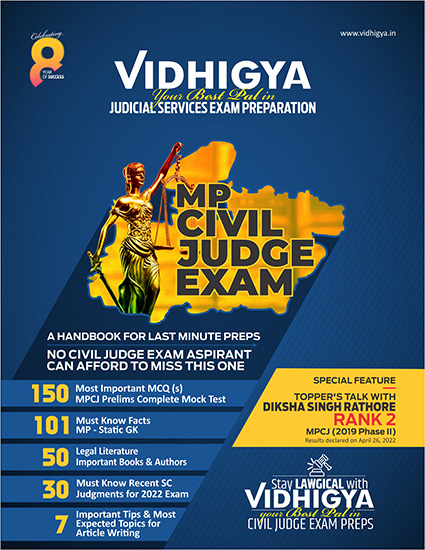The legal profession demands a unique set of skills and characteristics, not only to excel in the courtroom but to earn trust and respect in the field. A good lawyer isn’t just someone with legal knowledge; they must have a blend of analytical, interpersonal, and ethical qualities. Whether you’re aspiring to become a lawyer or seeking to understand what makes a successful advocate.
1. Strong Analytical Skills
A good lawyer must possess strong analytical skills to dissect complex information and make logical decisions. The legal field involves vast volumes of data and intricate scenarios, requiring lawyers to sift through, analyze, and pinpoint essential information. Analytical thinking is crucial for interpreting the law, evaluating the merits of a case, and developing a strategy.
- How to Build It: Analytical skills can be improved through regular practice of logical puzzles, case analysis, and mock trials. Law students are encouraged to participate in moot courts and debates to enhance this skill.
2. Excellent Communication Skills
Communication is one of the most critical skills for lawyers, as they need to articulate their thoughts clearly to clients, judges, and juries. A good lawyer can convey complex legal concepts in simple terms, ensuring clients understand their options and decisions. Both verbal and written communication skills are essential to present arguments, draft legal documents, and conduct negotiations.
- How to Build It: Lawyers should focus on improving public speaking, legal writing, and active listening. Joining public speaking clubs and writing legal briefs are excellent ways to enhance communication skills.
3. Research and Investigation Abilities
Legal cases demand thorough research and investigation to gather facts, interpret case laws, and analyze previous judgments. Good lawyers know where and how to find reliable information to back their arguments and remain current with legal developments. A well-researched case can be the difference between success and failure.
- How to Build It: Law students should practice researching through legal databases, reading recent judgments, and participating in legal research competitions to become proficient researchers.
4. Strong Negotiation Skills
Negotiation is an invaluable trait for lawyers, especially for those handling contracts, settlements, and out-of-court resolutions. Good negotiation can save time, reduce conflict, and lead to favorable outcomes for clients without undergoing a lengthy trial process. A lawyer who can negotiate effectively is often able to protect their client’s best interests.
- How to Build It: Practicing negotiation through mock trials, observing skilled negotiators, and studying negotiation strategies can help lawyers improve this skill.
5. Attention to Detail
In law, even the smallest details can have significant consequences. Good lawyers meticulously examine every piece of information, contract, or legal document to prevent overlooking vital elements that could affect the outcome of a case. Attention to detail is necessary for accuracy, especially when drafting contracts, filing legal documents, and presenting evidence.
- How to Build It: Lawyers can improve attention to detail by double-checking their work, creating checklists for tasks, and engaging in exercises that enhance focus, such as reading detailed case files.
6. High Ethical Standards and Integrity
The legal profession holds its practitioners to high ethical standards. Good lawyers must demonstrate honesty, transparency, and integrity, both inside and outside the courtroom. Ethical standards build trust between lawyers and clients and ensure the lawyer represents the best interests of their client without compromising legal ethics.
- How to Build It: Law students should familiarize themselves with the legal code of conduct, practice honesty in all professional settings, and seek mentorship from experienced lawyers known for their integrity.
7. Empathy and Understanding
Good lawyers need to understand their clients’ perspectives and empathize with their situation. Legal cases often involve sensitive matters, and a compassionate lawyer can provide not only legal guidance but emotional support. Empathy also helps lawyers relate to juries, witnesses, and other parties, making their arguments more persuasive.
- How to Build It: Empathy can be enhanced by actively listening to clients, taking on pro bono cases to understand different social perspectives, and reading about human psychology and emotional intelligence.
8. Resilience and Perseverance
The legal profession is challenging, with long hours, intense cases, and frequent setbacks. Good lawyers possess resilience and perseverance to remain focused, bounce back from losses, and maintain their determination. Resilience is essential in the courtroom, where setbacks and adversities are common.
- How to Build It: Lawyers can build resilience through stress management techniques, such as regular exercise, mindfulness, and maintaining a healthy work-life balance. Taking regular breaks and seeking peer support are also helpful.
9. Adaptability and Problem-Solving Skills
The legal landscape is dynamic, with laws and case precedents constantly evolving. Good lawyers are adaptable, able to think on their feet, and ready to pivot their strategies based on new information or changes in the law. Adaptability also helps lawyers tailor their approach according to the unique needs of each case and client.
- How to Build It: Adaptability can be cultivated by staying updated on legal news, participating in various types of cases, and developing creative problem-solving techniques to think outside the box.
10. Strong Sense of Responsibility
Good lawyers understand the significant responsibility they bear in representing their clients and ensuring justice. They take their duties seriously, are punctual, meet deadlines, and maintain clear and consistent communication with clients. A strong sense of responsibility helps lawyers earn trust and maintain a positive reputation.
- How to Build It: Developing a sense of responsibility can be done by organizing one’s workload, setting personal accountability standards, and prioritizing client needs.
Developing the Top Qualities of a Good Lawyer
While some people may naturally possess these traits, others can develop them with dedication and practice. Here are some additional ways to build these qualities:
- Mentorship: Learning from experienced lawyers helps young advocates gain insights into the qualities needed to succeed and navigate complex cases effectively.
- Continuous Learning: The legal profession requires ongoing education, not only to stay updated with laws but also to refine skills like public speaking, negotiation, and writing.
- Seeking Feedback: Regular feedback from peers, mentors, and clients provides valuable insights into areas of improvement. Constructive criticism can enhance skills and build confidence.
- Self-Reflection: Lawyers who engage in self-reflection, especially after cases or mock trials, tend to identify their strengths and weaknesses, fostering personal and professional growth.
- Setting Personal Goals: Identifying specific qualities you wish to improve, such as attention to detail or empathy, and setting measurable goals to work on them can yield great results.
Conclusion
Becoming a good lawyer requires more than just legal knowledge; it demands a balanced combination of analytical, communication, ethical, and interpersonal skills. The best lawyers understand that their roles go beyond representing clients—they are advocates, negotiators, advisors, and public figures who must uphold the values of the legal profession.



